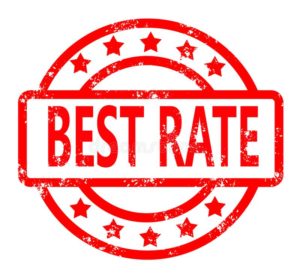There are many benefits of refinancing your home in Canada. Refinancing a home involves replacing an existing mortgage with a new one. You do this to take advantage of better terms, interest rates, or to access the equity built in the property. In Canada, home refinancing can be a powerful financial tool that offers numerous benefits to homeowners. This article explores the key benefits of refinancing and how it can help individuals improve their financial situation in Canada.

Benefits of refinancing your home are plentiful
I. Extend Amortization and Reduce Monthly Payments:
One of the primary benefits of refinancing is to take advantage of lower payments. By refinancing at a time when interest rates are higher than when the original mortgage was taken, homeowners can change their amortization to significantly decrease their monthly mortgage payments. This reduction in monthly expenses can do many things. It frees up additional cash, which can be used for various financial goals, such as saving for retirement, paying off debts, or investing.
II. Consolidating Debts:
Home refinancing allows homeowners to consolidate high-interest debts, such as credit card debts and personal loans, into a single, lower-interest mortgage. This process, known as debt consolidation, can save homeowners substantial amounts of money on interest payments and simplify their financial obligations. Instead of managing multiple debts with different interest rates and due dates, they now have a single monthly payment, making budgeting easier and more manageable.
III. Accessing Home Equity:
As homeowners make mortgage payments, the equity in their property increases over time. Home refinancing enables individuals to tap into this accumulated equity for various financial purposes. Whether it’s funding home renovations, paying for education expenses, starting a business, or covering unexpected medical bills, accessing home equity can be a lifeline during times of financial need.
IV. Changing Loan Terms:
Refinancing allows homeowners to adjust the terms of their mortgage to better suit their current financial situation. For instance, individuals with an adjustable-rate mortgage (ARM) may choose to refinance into a fixed-rate mortgage to lock in a stable interest rate and protect themselves from potential rate hikes. On the other hand, those with a long-term fixed-rate mortgage may choose to refinance into a shorter term to pay off their mortgage faster and save on overall interest costs.
V. Enhancing Credit Score:
When homeowners consistently make on-time mortgage payments and reduce their overall debt through refinancing, their credit score is likely to improve over time. A higher credit score can open doors to better financial opportunities.
VI. Investment Opportunities:
Homeowners who choose to refinance and access their home equity can use the funds to invest in income-generating assets. For example, they might invest in a second property, start a rental business, or explore other investment avenues that can provide additional streams of income. Smart investments can lead to long-term financial growth and wealth accumulation.
Home refinancing is a valuable financial strategy that can significantly benefit homeowners in Canada. By taking advantage of longer amortization, consolidating debts, accessing home equity, adjusting loan terms, individuals can strengthen their financial position and achieve their long-term financial goals. However, it’s essential to approach refinancing decisions with careful consideration. Call me today to see if refinancing is a good option.





 Mortgage renewal options need to be explored to make informed decisions for your future. Understand the benefits of renewing with your current lender, exploring other lenders, revising mortgage terms, and seeking professional advice. Make the best choice for your financial goals. As homeowners, one of the important financial decisions we face is when our mortgage term nears its end. We have the opportunity to explore mortgage renewal options and make choices that align with our goals. In this blog post, we’ll delve into the world of mortgage renewals. Shedding light on various options available to help you navigate this process seamlessly.
Mortgage renewal options need to be explored to make informed decisions for your future. Understand the benefits of renewing with your current lender, exploring other lenders, revising mortgage terms, and seeking professional advice. Make the best choice for your financial goals. As homeowners, one of the important financial decisions we face is when our mortgage term nears its end. We have the opportunity to explore mortgage renewal options and make choices that align with our goals. In this blog post, we’ll delve into the world of mortgage renewals. Shedding light on various options available to help you navigate this process seamlessly. I understand that bad credit shouldn’t hinder your dream of owning a home. In this blog post, we will delve into the world of mortgage options for bad credit in Canada, providing valuable insights and guidance to help you navigate this unique landscape. Whether you’re a first-time homebuyer or looking to refinance, we are committed to helping you find the right mortgage solution.
I understand that bad credit shouldn’t hinder your dream of owning a home. In this blog post, we will delve into the world of mortgage options for bad credit in Canada, providing valuable insights and guidance to help you navigate this unique landscape. Whether you’re a first-time homebuyer or looking to refinance, we are committed to helping you find the right mortgage solution.

 If you’re a member of the Metis Nation of Saskatchewan and are looking to buy your first home, you may be eligible for a first-time home buyer grant. This grant is designed to help individuals and families purchase their first home, and can be a valuable resource in making your dream of homeownership a reality.
If you’re a member of the Metis Nation of Saskatchewan and are looking to buy your first home, you may be eligible for a first-time home buyer grant. This grant is designed to help individuals and families purchase their first home, and can be a valuable resource in making your dream of homeownership a reality.